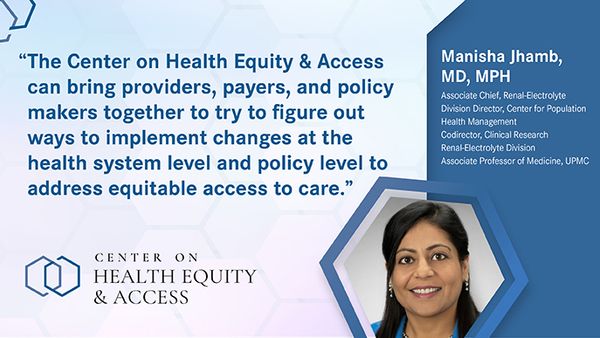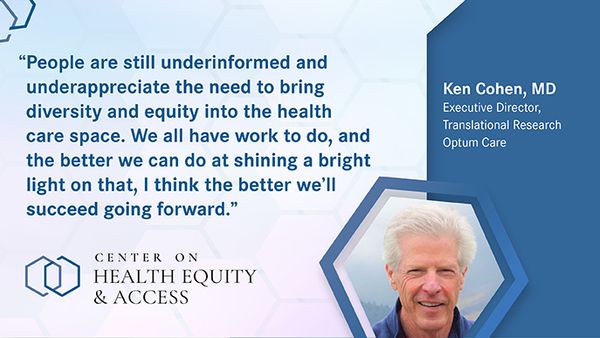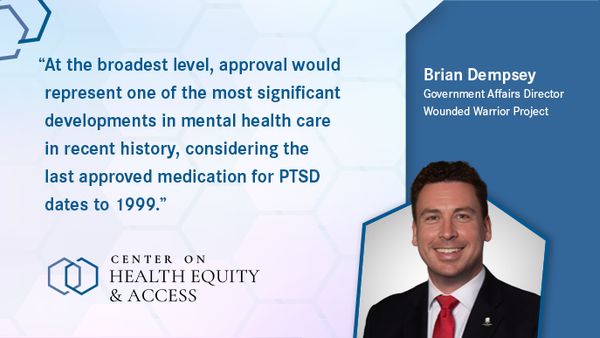
Center on Health Equity & Access
Latest News
Latest Videos

More News

Brian Slomovitz, MD, of Mount Sinai Medical Center, compares relacorilant plus nab-paclitaxel with existing treatments for platinum-resistant ovarian cancer and highlights the ROSELLA trial’s global scope.

Global type 1 diabetes cases are on the rise, especially in low-income countries, highlighting an urgent need for targeted health care strategies and epidemiological studies.

The proposed 2026 HHS budget slashes National Institutes of Health (NIH) funding by 40%, alarming health experts and threatening vital research and public health initiatives.

Research from Anjali Vaidya, MD, FACC, FASE, FACP, Temple University Hospital, reveals critical care gaps for patients with methamphetamine-associated pulmonary arterial hypertension (PAH), emphasizing the need for early diagnosis and integrated support.

Adolescent and young adult (AYA) patients with acute lymphoblastic leukemia (ALL) face significant survival disparities and unmet needs for effective third-line treatments, highlighting urgent care gaps.

Constance Blunt, MD, medical oncologist, Mary Bird Perkins Cancer Center, shares how one mobile health care initiative is addressing critical barriers to medical access for underserved populations.

A quick roundup episode of major health policy developments, from shifting COVID-19 vaccine guidance and scientific publishing controversies to rising cancer care costs and the impact of oncology biosimilars.

"Political directives should not prevent individuals from seeking safe and effective care that they desire and deserve," authors from the American College of Physicians (ACP) write.

US workers facing high economic hardship, especially those in lower-wage occupations, were significantly more likely to report fair or poor health, underscoring persistent disparities in worker well-being.

Racial and ethnic disparities in health access persist, highlighting the urgent need for targeted interventions to achieve health equity across various conditions.

Margrit Wiesendanger, MD, PhD, highlights how social determinants of health and equitable treatment access are critical to improving lupus outcomes, particularly in minority populations.

CK Wang, MD, explains that Black women face higher rates of late-stage breast and ovarian cancer diagnoses, demonstrating the need for better screening guidelines and more representative data.

A recent study reveals that many patients start dialysis at low-quality facilities due to convenience, highlighting significant racial disparities in care access.

Decisions made during the first few months of the Trump administration do not inspire confidence in Ali Khawar for further protections for parity in coverage of mental health.

Exploring caregiver dependence and social determinants of health reveals critical barriers to HIV care for children, impacting treatment adherence and access, explains Priscilla Tsondai, MD, MPH.

Women, older adults, and low-income countries are impacted most; researchers call for urgent public health interventions.

Lindsey Leininger, PhD, and Allister Chang, MPA, highlight the potential of laundromats as accessible, community-based settings to support Medicaid outreach, foster trust, and connect families with essential health and social services.

Pediatric mental health crises surge as emergency department (ED) waits exceed 12 hours, highlighting urgent needs for systemic health care improvements.

Findings from surveys of women with pulmonary arterial hypertension (PAH) include that 20% of health care providers were viewed as dismissive because of the patient’s sex.

Victor Murray, MSW, of the Camden Coalition, delves into the evolving role of social workers, focusing on advocacy, systems change, and addressing health disparities in underserved communities.

Abstracts published ahead of the 2025 American Society of Clinical Oncology Annual Meeting found persistent ovarian cancer survival disparities among racial and ethnic subgroups, particularly within disaggregated Asian American, Native Hawaiian, and Pacific Islander populations.

Cathy Eng, MD, FACP, FASCO, Vanderbilt-Ingram Cancer Center, speaks about the clinical and operational priorities that academic medical centers make front-and-center when caring for underserved populations receiving treatment for cancer.

As community oncology evolves to deliver chimeric antigen receptor (CAR) T and bispecific therapies closer to home, support is needed to ensure patient access and precision medicine capabilities, says Nini Wu, MD.

This week, the Center on Health Equity & Access covered news from the Trump administration and CMS, Cigna's co-pay cap on weight loss drugs, and perspectives on living with HIV.

The repeal of the federal rule could leave those with mental health and substance use disorders at risk of losing coverage for their treatment.




















